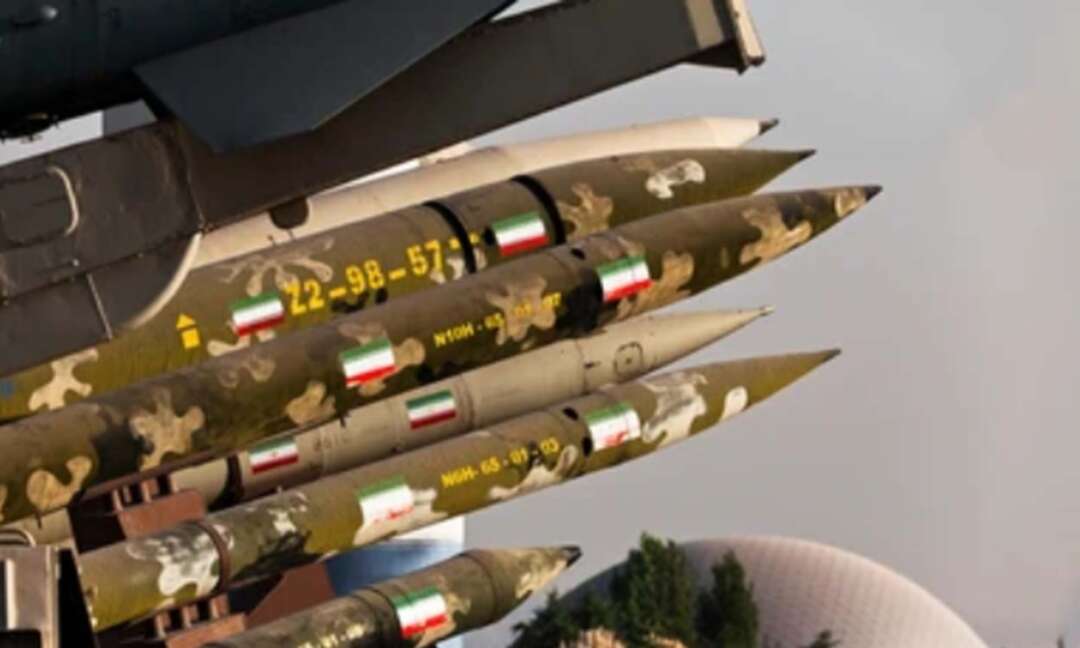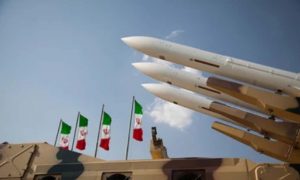-
Iran’s Air Defense System or an a hollow balloon?

The Iranian regime claims that the Alborz radar system can simultaneously intercept 300 targets within 450 km and the Borhan analysis system, after analyzing the information obtained, transmits the information to the command center in the shortest time so that the decision to destroy the target can be made.
But what is the reality?
In fact, the Iranian regime is not only incapable of building such systems but cannot even make much simpler tools. It suffices to examine the events of last January to find out the truth about Iranian technical capability.
At 6:19 a.m., shortly after takeoff from Tehran Airport, a Ukrainian passenger Jet was hit by two missiles and shot down by Tehran air defense, killing all 176 people on board, including innocent men, women, and children.
Iran immediately denied launching any missiles at the plane, and even before the plane's black box was obtained and analyzed, blamed the crash on the plane's technical defect.
The Iranian regime wanted to hide the scandal it had created. And when the news of the downing of the plane by the Tehran anti-air defense system leaked to the media, a spokesman for the Iranian Armed Forces called the claim a "mere lie" and stressed that "This is being pursued by the enemies in favor of the Americans and this is another conspiracy in the field of psychological warfare."
But shortly afterward the US intelligence officials said that infrared satellite imagery showed with certainty the firing of two surface-to-air missiles approaching the fuselage.
And, of course, later the video footage of the second missile approaching and hitting the plane, by a resident of the area who witnessed the incident and was able to record it with his cell phone was shown on social networks and took away the possibility of further denial from the Iranian regime.
 Iran’s Air Defense System
Iran’s Air Defense SystemAfter three days, Ali Haji Zadeh, the IRGC’s Air defense commander was forced to confirm that the plane had been shot down by an operator of the Air defense system, who had mistaken it for a cruise missile and fired at it!
Imagine when the Iranian Regime’s Air defense system is not even able to differentiate a passenger plane that took off a few minutes before from Tehran airport and is gaining altitude heading west with a cruise missile that is tens times smaller in size and heading toward Tehran, and a command system that is not able to analyze such a thing, then how can one expect such a baseless claim that Iran has built systems that can simultaneously intercept 300 targets at a distance of 450 kilometers?!
Of course, a glance at the Iranian regime’s forces in Syria fully clarifies the bogusness of this claim.
In Syria, we witness Israel continuously targeting bases and forces affiliated with the Iranian regime with planes and missiles, inflicting heavy casualties on them each time. But so far, the Iranian regime has not been able to take any action against these Israeli attacks. This situation is so humiliating to the Iranian Regime that they do not even publish the news of these attacks and announce the casualties in these attacks as a result of other incidents!
The question is if Iran has such capabilities that it claims, why doesn't it deploy them in Syria to protect its forces? Of course, the answer is obvious because it does not have such a capability.
On the other hand, one might ask why do some media outlets in other countries publish this Iranian propaganda news? And why do countries like the United States, which are fully aware of the propaganda nature of these claims, remain silent about them?
The reason is that although they are fully aware of the capabilities of the Iranian regime and the futility of these claims, such news is useful for their arms sales to countries in the region, and as a result, they not only do not react negatively to such news but also the publication of this news is welcomed.
The claim of a country that cannot even build a complete automobile and assembles cars that were produced with the technology of 30 years ago and are not even allowed to drive them in the European countries’ roads should not be taken seriously. These claims by the Iranian regime have no other use than to boost the morale of their unmotivated forces and are baseless propaganda. levant
by: Cyrus Yaqubi levant
Cyrus Yaqubi is a Research Analyst and Iranian Foreign Affairs Commentator investigating the social issues and economy of the Middle East countries in general and Iran in particular.
You May Also Like
Popular Posts
Caricature
BENEFIT Sponsors BuildHer...
- April 23, 2025
BENEFIT, the Kingdom’s innovator and leading company in Fintech and electronic financial transactions service, has sponsored the BuildHer CityHack 2025 Hackathon, a two-day event spearheaded by the College of Engineering and Technology at the Royal University for Women (RUW).
Aimed at secondary school students, the event brought together a distinguished group of academic professionals and technology experts to mentor and inspire young participants.
More than 100 high school students from across the Kingdom of Bahrain took part in the hackathon, which featured an intensive programme of training workshops and hands-on sessions. These activities were tailored to enhance participants’ critical thinking, collaborative problem-solving, and team-building capabilities, while also encouraging the development of practical and sustainable solutions to contemporary challenges using modern technological tools.
BENEFIT’s Chief Executive Mr. Abdulwahed AlJanahi, commented: “Our support for this educational hackathon reflects our long-term strategic vision to nurture the talents of emerging national youth and empower the next generation of accomplished female leaders in technology. By fostering creativity and innovation, we aim to contribute meaningfully to Bahrain’s comprehensive development goals and align with the aspirations outlined in the Kingdom’s Vision 2030—an ambition in which BENEFIT plays a central role.”
Professor Riyadh Yousif Hamzah, President of the Royal University for Women, commented: “This initiative reflects our commitment to advancing women in STEM fields. We're cultivating a generation of creative, solution-driven female leaders who will drive national development. Our partnership with BENEFIT exemplifies the powerful synergy between academia and private sector in supporting educational innovation.”
Hanan Abdulla Hasan, Senior Manager, PR & Communication at BENEFIT, said: “We are honoured to collaborate with RUW in supporting this remarkable technology-focused event. It highlights our commitment to social responsibility, and our ongoing efforts to enhance the digital and innovation capabilities of young Bahraini women and foster their ability to harness technological tools in the service of a smarter, more sustainable future.”
For his part, Dr. Humam ElAgha, Acting Dean of the College of Engineering and Technology at the University, said: “BuildHer CityHack 2025 embodies our hands-on approach to education. By tackling real-world problems through creative thinking and sustainable solutions, we're preparing women to thrive in the knowledge economy – a cornerstone of the University's vision.”
opinion
Report
ads
Newsletter
Subscribe to our mailing list to get the new updates!






















